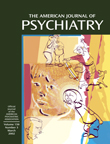Crucial Choices, Crucial Changes: The Resurrection of Psychotherapy
In this bizarre 500-page diatribe, De Schill rants and raves about the “calamitous condition” of the field of psychotherapy. He attacks some of our most eminent psychotherapists, calling them “snake oil salesmen” and “immensely damaging” to patients and students. He says he and a few other valiant souls must fight to resurrect the field that is currently under the control of “incompetents.”
De Schill is gratuitously argumentative, iconoclastic, pompous, and given to hyperbole. To take a typical example: “For well over half a century, I have been asking this: How is it that people without the slightest talent for our profession, with no sensitivity for human feelings and thus no sensibility whatsoever to comprehend dreams, can infiltrate our profession in such great numbers, become teachers, and have their writings published?”
Worse still, De Schill is repetitive, rambling, and circumlocutory. The manuscript was clearly written 8–10 years ago and has been awaiting publication by a vanity press. The author should have taken the time and effort to improve it. Not only is his tendentiousness off-putting, but the lack of editing demonstrates disdain for the readership. If De Schill claims to fight the “worst” in psychotherapy, then why does he present this hodgepodge of ideas without organization? Why, for example, include patient education materials (written to “you” the patient) in the midst of a chapter written for therapist readers?
Affiliated with the American Mental Health Foundation since 1948, De Schill says that his work and that of the Foundation has been unappreciated and unrecognized by the establishment—academic departments of psychiatry, professional organizations, psychiatric journals, and major public policy institutions. He says that the U.S. Congress has ignored and rejected his ideas.
De Schill claims that he has only the public interest in mind—his goal is to reduce human suffering—and that, unlike reputed leaders in the field, he is not swayed by parochial concerns. He condemns those “profiteers” who peddle simplistic, ready-made, abbreviated, and overly theoretical psychotherapeutic approaches. Although he criticizes the tendency of writers on psychotherapy to refer to authority, he himself engages in the most primitive ad hominem insults. Why is it necessary to resort to such underhanded tactics and cast aspersions on people’s honor? The entire book is replete with ludicrous and irrelevant pronouncements.
Although De Schill savages the entire field of psychotherapy (according to him, less than 15% of psychoanalytic psychotherapists meet minimal qualifications), he singles out Yalom and Karasu for particular punishment. Yalom published a best-selling book on psychotherapy, and Karasu led an APA commission on psychiatric treatments and is editor of a psychotherapy journal. Whether one agrees or disagrees with the views of Yalom and Karasu, they have been able to articulate their ideas in a cogent and eloquent fashion.
De Schill is critical of existing training programs in psychiatry, psychology, and psychoanalysis that, in his view, serve to promote preconceived notions and place too little emphasis on clinical work with individual patients. As he sees it, theory gets in the way of understanding patients, and intellectualized language gets in the way of communicating with the patient’s unconscious. As a psychoanalytic psychotherapist myself, I’m sympathetic with De Schill’s values and focus on depth psychology and dreams. But he’s preaching to the choir. I don’t know of anyone who supports the use of cookbook, a priori interpretations. There is also nothing new in his critique of brief therapies. Everyone struggles with time and financial constraints. No one believes in or promotes shortcuts, although some of us more readily accommodate to those pressures.
As an educator and director of a psychology training program, I am confronted by the problem of selecting talented candidates and constructing an appropriate curriculum. De Schill offers no useful solutions. He cites one unnamed therapist who was in psychoanalysis for 13 years and in supervision for 20 years as an example of the kind of dedication required to meet his standards. There is no chance my psychology interns would be willing to wait that long for certification, and if they were, I’d have doubts about their sanity.
As someone who is concerned with my patients’ suffering, I too am interested in identifying the most effective treatments. But how can De Schill reject the accumulated wisdom and legions of outcome studies and place his opinions above all others? Is he the only one who knows what “good” therapy is and who should be a practitioner? His critique of outcome studies and his analysis of psychoanalytic jargon is familiar and unoriginal. Finally, his proposals regarding intensive psychodynamic group therapy administered in 3-hour sessions twice a week seem just as quirky and potentially damaging as those treatments he criticizes.
Without exaggeration, this is probably the worst book I’ve ever read in this field! My summary makes the book appear to be much more coherent and sensible than it is upon reading.



